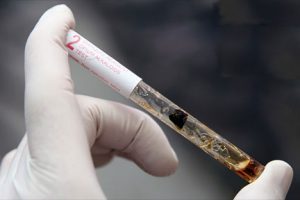
Students enrolled in the University’s Department of Journalism Spring Immersive Learning class “Unmasked: Recovery and Redemption” will host a Story Walk from 5:30-7 p.m. Thursday, April 25 at First Merchants Bank Community Room.
Students will explain how they explored the growing addiction recovery community in Muncie, Delaware County and East Central Indiana, and the role churches and faith-based organizations have in helping addicts address the disease.
A Story Walk combines student journalists and their sources — some with artifacts from their personal narratives — presenting the project and how stories emerged.
Students found there are several 12-step meetings, support groups and faith-based programs available. In fact, they are common in this community. But there are far fewer medical-based, in-patient and outpatient treatment alternatives as government and community-based health care providers come to terms with the worst drug crisis in the nation’s history.
In 2016-17, a class of Ball State students examined the use of meth in Delaware County. The result was www.stigmaunmasked.com, a website with original content that included a 30-minute, made-for-public-television documentary and a 40-page magazine.
In 2019, students revisited the topic through the lens of recovery updating the website and producing a new magazine. Funded by a Ball Brothers Foundation Rapid Grant, students from the Department of Journalism examined what has changed for Muncie residents Brian and Rhea Graham, who were featured in the project’s original documentary and magazine, and the role local faith communities have in addiction recovery.
In the magazine, available free at outlets across Muncie, features stories about addicts in search of recovery, and the obstacles they face, including funding for residential treatment. The Grahams, who are frequent speakers at Narcotics Anonymous meetings and often travel to regional and national NA conventions, discuss how they have stayed clean and what it meant to alter their circle of influence.
Students also examine relapse as a part of recovery, and the effect drug addiction has on families and communities.



